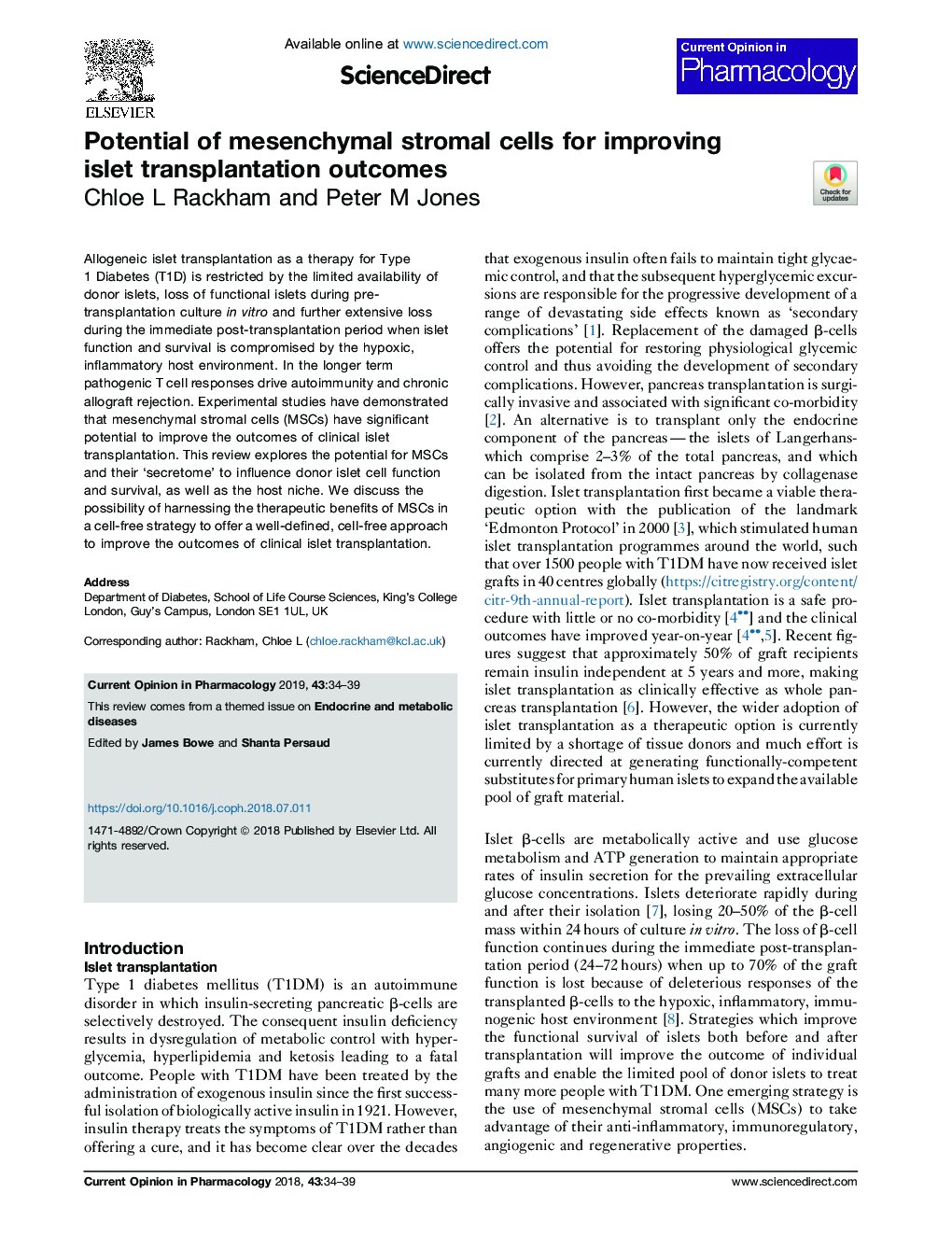| Article ID | Journal | Published Year | Pages | File Type |
|---|---|---|---|---|
| 8528538 | Current Opinion in Pharmacology | 2018 | 6 Pages |
Abstract
Allogeneic islet transplantation as a therapy for Type 1 Diabetes (T1D) is restricted by the limited availability of donor islets, loss of functional islets during pre-transplantation culture in vitro and further extensive loss during the immediate post-transplantation period when islet function and survival is compromised by the hypoxic, inflammatory host environment. In the longer term pathogenic T cell responses drive autoimmunity and chronic allograft rejection. Experimental studies have demonstrated that mesenchymal stromal cells (MSCs) have significant potential to improve the outcomes of clinical islet transplantation. This review explores the potential for MSCs and their 'secretome' to influence donor islet cell function and survival, as well as the host niche. We discuss the possibility of harnessing the therapeutic benefits of MSCs in a cell-free strategy to offer a well-defined, cell-free approach to improve the outcomes of clinical islet transplantation.
Related Topics
Life Sciences
Neuroscience
Cellular and Molecular Neuroscience
Authors
Chloe L Rackham, Peter M Jones,
